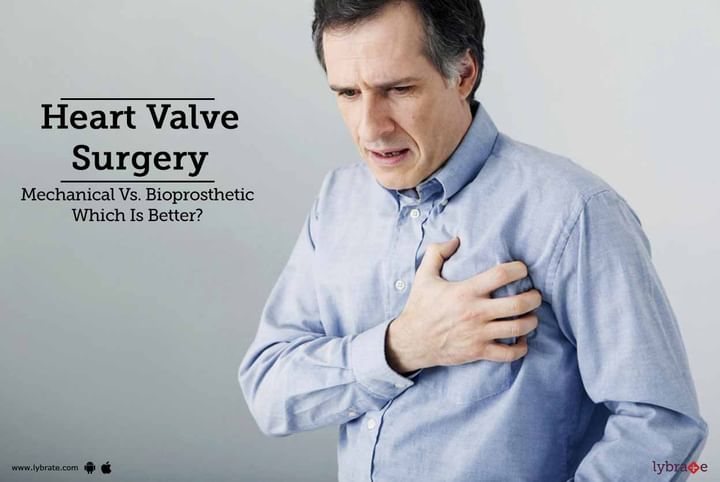Heart Valve Surgery - Mechanical Vs. Bioprosthetic - Which Is Better?
A valve is something that allows a liquid to flow in one direction. Our heart has valves, and they play a critical role in ensuring that the blood travels in the right direction.
There are four valves in our heart:
- Tricuspid
- Pulmonary
- Aorta
- Mitral valve
A person suffers from heart valve disorder when one or more of these four valves stops functioning accurately. Each valve comes with a flap that opens and closes to allow blood flow. Disruption in the blood flow, thereby leading to serious ailments, can occur even if a single flap stops functioning. To rectify this situation a valve replacement surgery is conducted by heart surgeons. There are majorly two types of surgeries available: Mechanical and Bioprosthetic.
Mechanical Heart Valve surgery involves the replacement of the defective valve with a substitute made of metallic alloys and plastics. On the other hand, Bioprosthetic surgery is conducted using the valve tissue of an animal which is anchored to a bioprosthesis.
Mechanical Heart Valve Surgery: Pros and Cons
The prosthetics that is used in a mechanical valve replacement surgery are much more durable than those (cow or pig tissues) which are used in a bioprosthetic surgery. It lasts up to 20 to 30 years. But the major disadvantage of this surgery is that over the time the artificial replacements can lead to blood coagulation. Therefore, if you have undergone mechanical heart valve replacement, you will need a prolonged prescription of anticoagulation medicines. Unfortunately, there is plenitude of side-effects of anticoagulants. Therefore, you would have to be under medical observation through and follow the dietary restrictions (as per the instructions of the doctor). However, if you already have bleeding disorders, or are pregnant, this surgery will not be recommended for you. But, if you are already on anticoagulation medicines a mechanical surgery is the most practical option for you.
Bioprosthetic Heart Valve Surgery: Pros and Cons
Bioprosthetic surgery uses animal tissues as substitutes of the human valve tissue. Therefore, bleeding disorders are very less likely to crop up. So you do not have to depend on anticoagulants to sustain. The downside of this surgery is that the replaced tissues do not last for more than 10 years. So if your life-expectancy is high, you will need a second operation after 10-15 years. For this reason itself, bioprosthetic surgery is recommended to sexagenarians or septuagenarians who can spend the rest of their lives soundly without the need of anticoagulants or re-operation.
Which is relatively better: Depends on the patient
It can be affirmed that the surgery type completely depends upon the current medical situation of the patient undergoing surgery. For younger people, mechanical heart valve surgery works better, because with medical assistance post-surgery, a sound life is possible without the need of another hospitalization or reiteration of the surgery.
On the other hand, older people, people who need to undergo dialysis from time to time and those who have bleeding disorders or other underlying medical conditions should go for bioprosthetic heart valve replacement surgery.



+1.svg)
